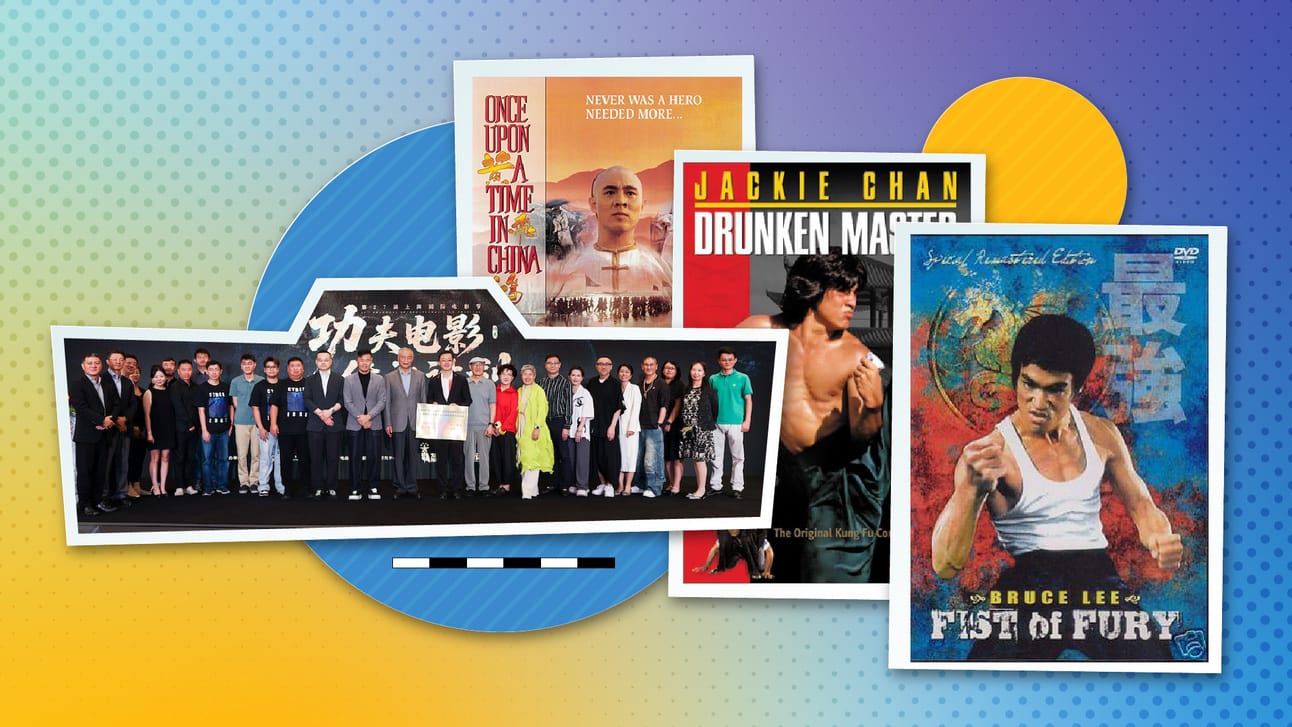A consortium of major Chinese film studios has announced plans to use artificial intelligence to remake 100 classic kung fu films, including works starring Bruce Lee, Jackie Chan, and Jet Li. The government-backed Kung Fu Movie Heritage Project has secured 100 million yuan ($13.9 million USD) in funding and represents one of the most ambitious applications of AI in film production to date. The initiative will create digital doubles of deceased and retired stars while transforming decades-old footage with AI-enhanced visuals, sound, and even new animated interpretations.
The announcement came during the Shanghai International Film Festival in June 2025, positioning China at the forefront of using AI for creative reinterpretation rather than just technical restoration.
Digital Dojo: AI technology will recreate iconic performances using deepfakes and virtual actors for entirely new scenes
The project targets several foundational works of martial arts cinema. Bruce Lee's Fists of Fury (1972), Jackie Chan's Drunken Master (1978), and Jet Li's Once Upon a Time in China (1991) are among the confirmed titles for AI treatment. Perhaps most intriguingly, John Woo's A Better Tomorrow (1986) will be reimagined with what studios call a "cyberpunk edge" as the world's first full-process, AI-produced animated feature film.
The technical approach spans multiple AI applications:
Visual enhancement through AI-powered resolution upgrades, color grading, and special effects improvements
Sound remastering that creates new immersive soundscapes from original audio tracks
Virtual performance generation using digital doubles to create new stunts and dialogue sequences
Full-process animation that transforms live-action material into stylized animated content
Zhang Pimin from the China Film Foundation described these films as "aesthetic historical treasures," arguing that AI enables transformation that both honors originals and adapts them for contemporary audiences. Shanghai Canxing Culture and Media's chairman Tian Ming added that AI would "reshape the visual aesthetics" while showcasing upgrades across image, sound, and production quality.
Behind the Scenes: Government backing smooths legal hurdles around digital likeness rights that complicate similar projects elsewhere
The scale of this initiative sets it apart from typical film restoration projects. While Hollywood studios regularly use digital tools for 4K upscaling and noise reduction, this Chinese project embraces AI for creative reinterpretation with explicit government endorsement. The state coordination appears to resolve intellectual property concerns around deceased actors' digital likenesses—issues that create significant legal obstacles in other markets.
Industry champions within China view the project as "brave exploration of the innovative development of film art," blending preservation with technological advancement. The substantial funding and official backing suggest alignment with national interests in both cultural innovation and technological leadership.
However, reception remains mixed among fans and industry professionals. Some welcome efforts to modernize classic kung fu cinema for new audiences, while others worry that AI remakes could dilute the original artistry and human performances that made these films culturally significant.
Action and Reaction: The initiative tests boundaries between technological innovation and cultural authenticity in cinema
The project raises complex questions about preserving cultural heritage versus rewriting film history. Using AI to generate new performances from deceased stars like Bruce Lee challenges traditional notions of artistic authenticity and the preservation of cultural memory.
The legal framework appears more streamlined than similar efforts might face in the United States or Europe, where actors' estates typically control digital likeness rights. China's centralized, state-coordinated approach potentially smooths these hurdles but raises different questions about performer consent and appropriate compensation for digital recreation.
Beyond legal considerations, the technical leap from AI upscaling to full script and performance generation represents a massive challenge. Audience acceptance isn't guaranteed, and there's genuine risk that over-reliance on AI could produce content that feels disconnected from its cultural roots.
Final Cut: This initiative could redefine global standards for film restoration while testing whether AI can authentically honor cinematic legacy
If successful, these AI remakes may establish new standards for film restoration, animation, and creative use of archival material both within China and internationally. The project's outcomes could influence how studios worldwide approach classic content and potentially pressure the global industry toward similar AI adoption.
The economics also matter—AI-powered remakes could prove cheaper and faster to produce than traditional methods, potentially disrupting current business models across the entertainment industry. As these films move from announcement to actual production and release, they'll provide crucial data on audience acceptance of AI-generated performances and the viability of large-scale AI creative projects.
The kung fu classics that shaped action cinema may be about to shape the future of filmmaking itself, though whether audiences will embrace these digital resurrections remains the ultimate test.


